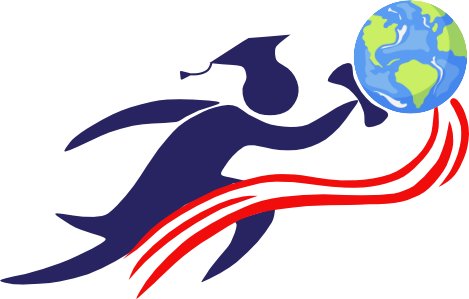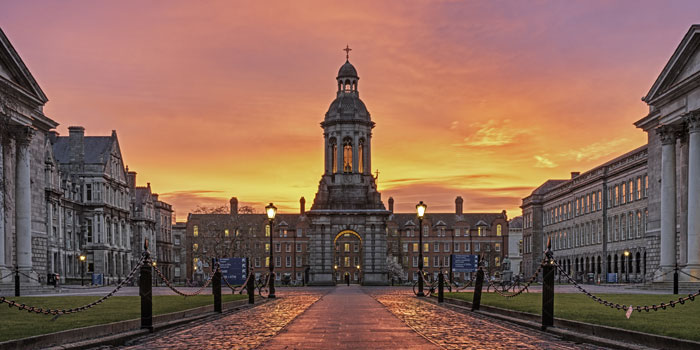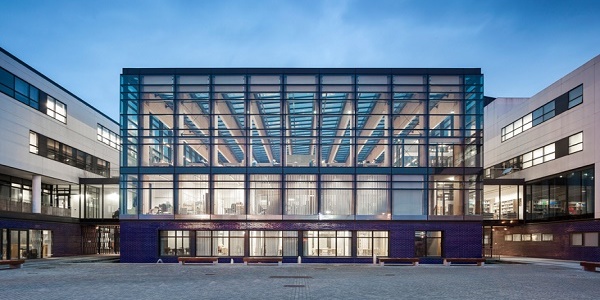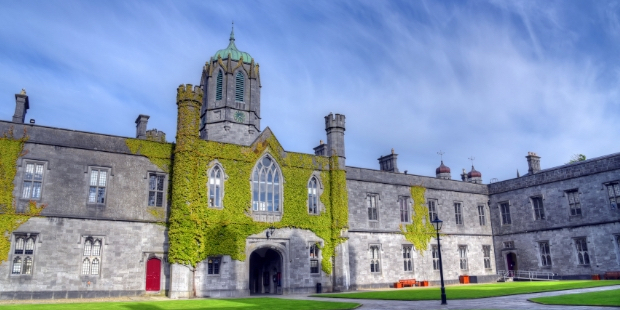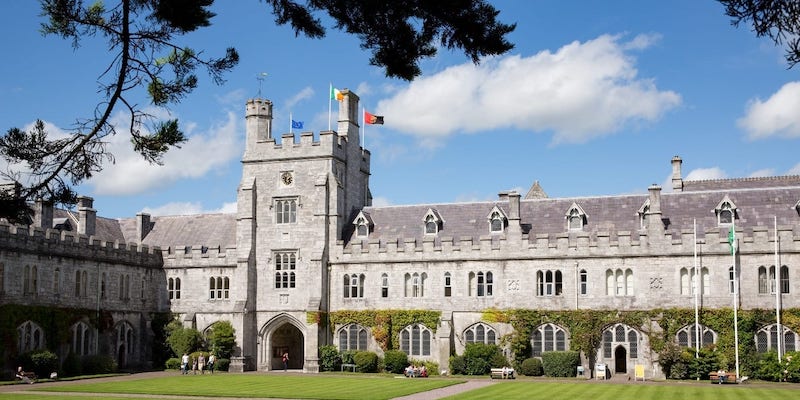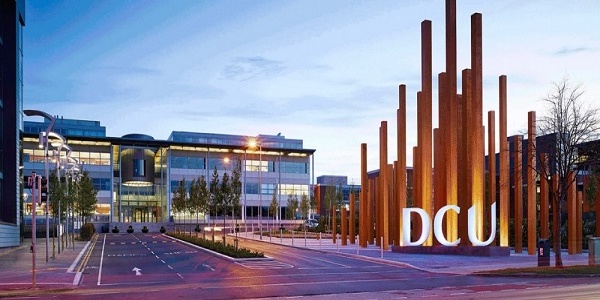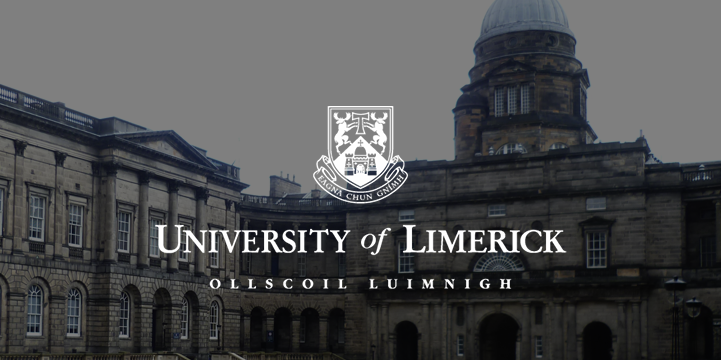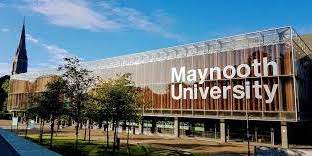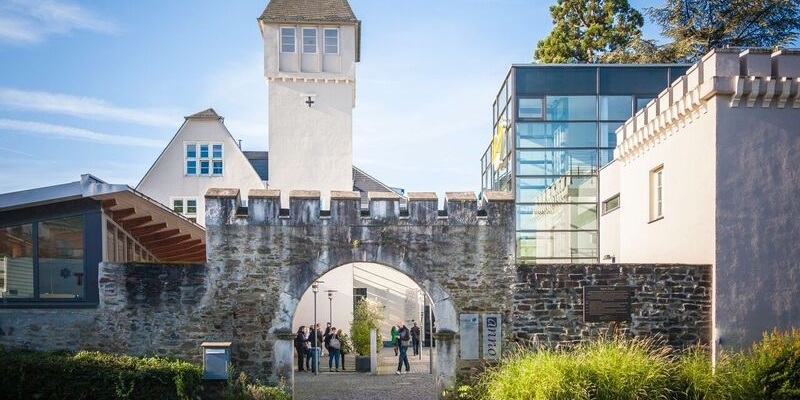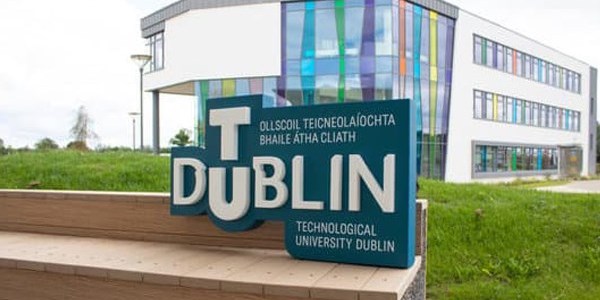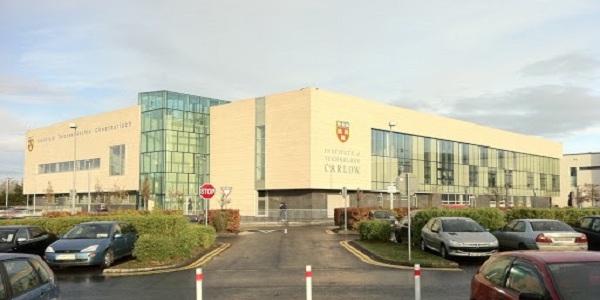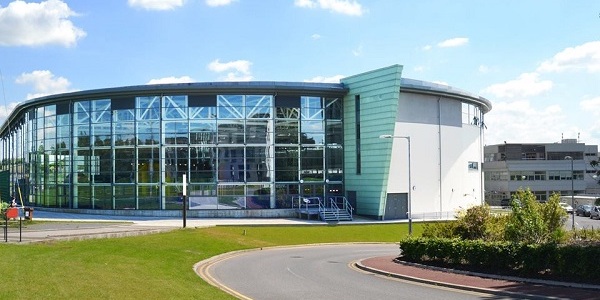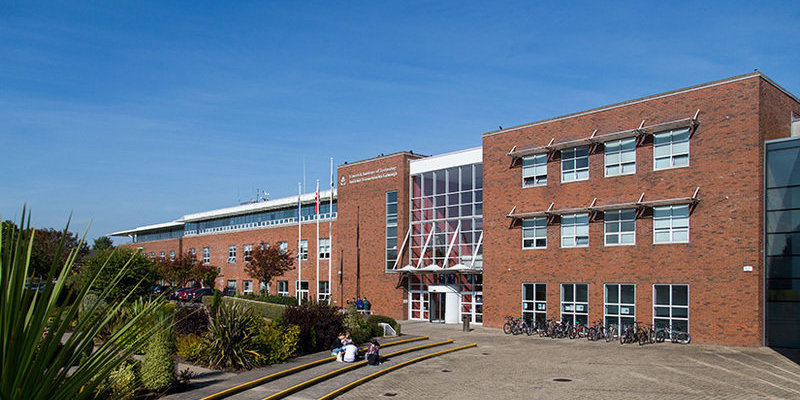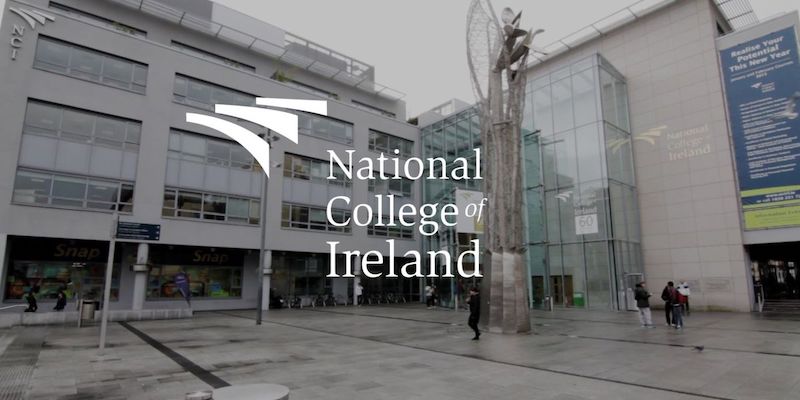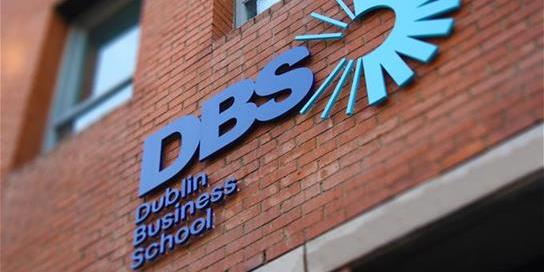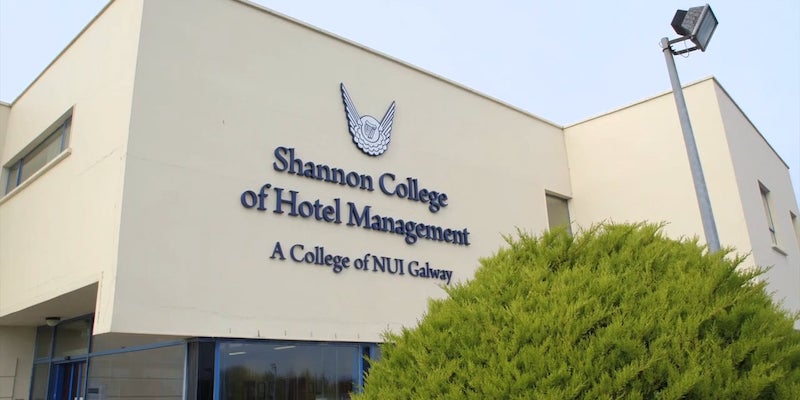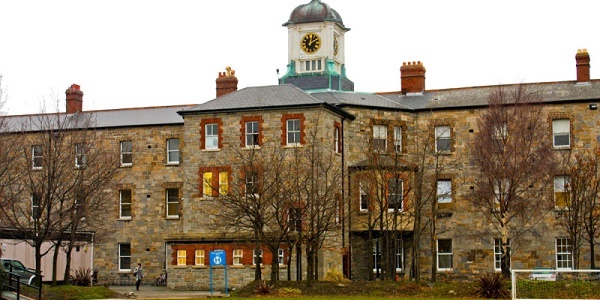Study in Ireland
Study in Ireland – Your Comprehensive Guide
Reasons to Study in Ireland
Post Study Work Visa
Stay in and work full time in Ireland for 2 years after completion of Master’s degree and for 1 year after completion of Honours Bachelor’s degree (6 months for ordinary bachelors degree). This gives you sufficient time to find a job and shift to a Work visa.
Shorter Degree Courses
All Master’s degree courses are 1 year in duration and all Bachelor’s degree courses are 3 years in duration. These require 1 year less to complete as compared to the USA and Canada where UG courses are 4 years long and PG courses are 2 years long. Even though the courses are shorter in Ireland, these degrees are accepted everywhere in the world including the USA, Canada, Australia, and India.
Part-time work
You will be allowed to take up casual employment of up to 20 hours of part-time work per week in term time or up to 40 hours per week during college vacation periods. The minimum wage is EUR 9.15 per hour.
High Quality of Education
There are a total of 9 Universities out of which 8 Government‐funded universities and 1 private German University providing undergraduate, postgraduate & research degree programs.
There are 11 government‐funded institutes of technology. They offer a wide variety of programs that can be both academically and vocationally focused.
Colleges, mostly private, offer a range of programs including professional certificates, diplomas, undergraduate & postgraduate degrees in a diverse range of subjects.
Admission Criteria
Bachelors:
- Minimum 70%‐90% in class 12th for Universities
- 70% in class 12th for Institute of Technologies
- 55%‐60% in class 12th for Colleges
Masters :
- Minimum 55%‐75% in Graduation with
- IELTS 6.5* with no band less than 6.0. IELTS 6 with no band less than 5.5 is also acceptable in some Universities, Institutes of Technologies and Colleges.
Dublin Business School offers 2 months pre‐sessional English Language course if the student is having IELTS 6 with no band less than 5.5 and the overall requirement is 6.5 bands.
Documents Required for Applications
- Mark sheets of Class X, XII, and Bachelors degree (if applicable)
- At least, two academic reference letters from professors who have taught you most recently
- If you have work experience, then one letter of recommendation from the employer/manager
- Statement of Purpose (SOP)
- Resume
- A score of IELTS/TOEFL (English Language)
- Others (Scholarships/ Certificates/ achievements at the state and national level and extracurricular activities)
Cost & Expenses
Study in Ireland expenses:
- Tuition Fees for undergraduate courses is about 8-15 lakhs/year
- Average Tuition Fees for postgraduate courses is about 10-15 lakhs/year
- Living cost approx 8-10 lakhs/year
Major Intakes
Autumn intake in September is the main intake in Ireland and there is a smaller Spring intake in February [For some programs/ colleges more intakes are available]
Part-Time Work
When you study in Ireland, you can work part-time in the following cases:
- Registered with GNIB [Non-EU students coming to Ireland to study for more than 90 days have to, by law, register with the Garda National Immigration Bureau].
- Enrolled in a recognized program leading to a qualification recognized by the Minister for Education & Skills.
- Attending a full-time program of education at or above NFQ Level 7 (Bachelors)
- On a program of at least one year’s duration
You can work up to 20 hours/week period once your course starts. You can work full time 40 hours/ week only during the months of June, July, August, and September and from 15th December to 15th January.
Post Study Work Visa
- Apply within 6 months of getting your degree
- Must not have already exceeded the seven-year limit on their permission as a non-EEA national student in the State.
- May, if having previously benefitted from the Third Level Graduate Programme at a level 8 award or above, on achievement of a higher level award, e.g. level 9 or above, re-enter the Third Level Graduate Programme, subject to the overall limit of eight years.
- good character and not to have come to the adverse attention of the authorities in any way.
1 Year Post-study work permission
Graduates with an award at Level 8 (Bachelors with Honours) on the National Framework of Qualifications will be granted twelve-month permission to a maximum of seven years’ student permission overall. (i.e. time spent on Stamp 2 as a student and on Stamp 1G under this program cannot exceed an aggregate time of seven years in total). Students completing ordinary bachelor’s degrees are not eligible to apply for Post-study Work Visa. They get 6 months to stay after course completion as part of their student visa.
2-year Post-study work permission (1 year + 1-year extension)
Graduates with an award at Level 9 (Master’s degree) or above on the National Framework of Qualifications qualify for the Programme will be granted permission for twelve months initially. This will be renewed for a further period of twelve months (subject to the overall eight-year limit) where the graduate satisfies the immigration authorities that he or she has taken appropriate steps to access suitable graduate level employment (e.g. attendance at job interviews, signing up with graduate employment agencies, etc.).
Work Permit Schemes and Permanent Residency
General Work Permit (Get PR after 5 years):
Allows a non‐EU citizen to work legally in Ireland for an employer in a particular occupation.
Individuals must have an annual Salary above €30,000 to qualify for a work permit.
The permit is Initially Granted for 2 years and can be renewed for a further period of 3 years. The work permit can be issued indefinitely after a period of 5 years.
Ireland Green Card (Critical Skill Employment Permit – Get PR after 2 years)
Allows skilled individuals to work in Ireland for a specified employer in an occupation where skills shortages exist.
Individuals must have an annual Salary above €60,000 to qualify for the Green Card permit. The permit is initially granted for 2 years. After 2 years, immigrants may apply for a Stamp 4 which allows them to live and work in Ireland on a permanent basis.
Study Visa for Ireland
Normal Visa
- Applications must be lodged at the VFS center at least 6 weeks prior to the proposed dates of travel.
- Student must have an unconditional offer and he/she should pay a minimum deposit of 6000 Euros if the fee is 12,000 Euros or less and 50% of the tuition fee if the fee is more than 12,000 Euros.
- Student Applications lodged 3 weeks or less prior to the proposed date of travel will not be processed. the 3 weeks deadline is for the file to reach the visa office in New Delhi and not the time of submission in the VFS office.
Approval in Principal Scheme
- Apply with a conditional offer (pending final year mark sheets provisional degree)
- the student must have paid a minimum deposit of 6000 Euros
- Application to be filed at least 7 weeks before the course start date
- Once the final year mark sheets and provisional degree has been submitted to Ireland embassy, the visa will be issued.
Spouse Visa in Ireland (Dependent Visa)
As a general rule non-EU international students studying in Ireland have no right to bring their families with them. Spouses and children of international students can apply to live in Ireland separately, but not on the basis of their relationship with a student.
The Irish Naturalisation and Immigration Authority (INIS) might consider an exemption for certain cases from this policy. For example, if a student is pursuing Ph.D. studies (Level 10) and will be required to complete their doctorate within four years might be allowed to be joined by their partners and children.
Documents Required for Student Visa Application for Ireland
Following documents will be required for the Visa application:
- Complete the online application forms
- Payment confirmation for visa application fees
- Original Passport – Ensure your passport is valid for 12 months
- Provide a passport-sized photo
- Acceptance letter from University and proof of payment of fee
- Statement of Purpose – provide a signed letter of application that explains why you require the visa
- Brief CV
- English Language Test Scores IELTS/ TOEFL
- Transcripts, and certificates of your education
- Letter from Current Employer or Experience Certificate (where applicable)
- Original Police Clearance Certificate from Passport Office.
- Medical Insurance
- Financial statements to prove you have funds for the remaining tuition fee and living expenses
Financial Documents for Ireland Study Visa Application
- Affidavit of Support of Sponsorer on stamp paper.
- Bank Statement & Bank Balance Certificate (Last 6 Months): Total tuition fees + €10,000 living expenses for each year.
- Bank Loan Sanction Letter and the documents of the property mortgaged with its valuation report (If any).
- Income Tax Return Papers of the sponsor for the last 3 years
- Fixed deposit receipts should be submitted along with a Fixed Deposit bank certificate (On bank letterhead)
Alternative Evidence of Finance – Degree Programme Students Only
A pilot program is in operation that allows degree program students only, to provide an alternative to bank statements as a method of proof of finances. The alternative method is an “education bond” with a minimum value of €7,000 (ideally €10,000). This alternative eliminates the need for gathering invasive, time-consuming financial documentation. A source of purchasing the bond is to be shown at the time of Visa.
The bond must be held continuously from the initial visa application through to the time you register in Ireland with the immigration authorities. This is to ensure that the necessary funds exist and are reserved for your personal use. The bond will be cashable when you arrive in Ireland or if for any reason the visa is refused or you decide not to take up your place in the college.
Benefits of EducationBondIreland
- A swifter visa application process
- 24/7 customer service
- Reduces receipt and visa queries
- Eliminates paperwork
- Hassle-free service
- Improves communications between student & visa office
How can Road to Abroad Help you?
We are leading overseas education consultants which provide professional guidance to all those who aspire to study abroad. We offer a one-stop solution to all your needs related to studying abroad. Be it admission counseling, study visa assistance, IELTS Preparation, permanent residency visa, post-study work visa, we provide expert counseling from the beginning of the journey to the very end. Our founder and director Dr. Sriyash Mangal is a graduate of University College London (ranked among the top 10 in the world university rankings) and holds a Ph.D. from LMU Munich, Germany (IMPRS Ph.D. Program). Therefore, we understand the value of good education and do everything to get you admitted to a university that is perfect for you.
Universities in Ireland
Trinity College Dublin
- 1st ranked in Ireland and 104th in the World
- World Leader in Nanotechnology, Immunology, Engineering, Information Technology
University College Dublin
- 2nd ranked in Ireland and 193rd in the World
- National University of Ireland
- Largest provider of Graduate Education in Ireland
National University of Ireland Galway
- 3rd ranked in Ireland and 260th in the World
- Popular courses: Business Analytics, Mechanical Engineering, Computer Science and Nursing
University College Cork
- 4th ranked in Ireland and 338th in the World
- Located in Cork‐2 hours from Dublin
- Cork is the Pharmaceutical Capital of Europe
Dublin City University
- 5th ranked in Ireland and 422nd in the World
- Irish Centre for Cloud Computing
University of Limerick
- 6th ranked in Ireland and 511th to 520th in the World
- Popular Courses: MSc Aeronautical Engineering, Meng Mechatronics, MSc International Management and Global Business
Maynooth University
- 8th ranked in Ireland and 701‐750th in the World
- Located in Maynooth‐half hour from Dublin
- Popular Courses: MSc Data Science and Analytics, MSc Business Management, ME Electronic Engineering etc.
IUBH (International University of Applied Sciences Bad Honnef – Bonn)
- Germany’s leading private state‐recognized University having a campus in Dublin, Ireland
- Popular Courses: MBA, Masters in International Marketing, Hospitality Management etc.
Institute of Technologies in Ireland
Institute of Technology Carlow
- 16th ranked in Ireland
- Popular courses: B.E. in Aerospace/Mechanical /Civil, Data science, Supply Chain Management etc.
Athlone Institute of Technology
- 19th ranked in Ireland
- PopularCourses:Nursing,Healthcare,Design,Sports, Science, Civil, Mechatronics, Electronics and Business.
Private Colleges in Ireland
National College of Ireland
- NCI has been ranked 15th in Ireland
- Major Intake: September and January
- Popular Courses: MSc Data Analytics, MSc Cloud Computing, MSc Management etc.
Dublin Business School
- Major Intake: September and January
- Popular Courses: MBA, MSc Information Systems with Computing, MSc Management
Shannon College of Hotel Management
- Popular Courses: Bachelors in International Hotel Management and Masters in Business and Hospitality
Pre-Departure Checklist
- Passport
- Book airline tickets
- Arrange accommodation near the University
- Arrange transportation to/from the airport to your new home
- Arrange your banking requirements – consider buying traveler’s currency card
- Check baggage and customs limitations
- Clear all paperwork with your home educational institution
- Travel insurance certificate
- Letter of Acceptance (LOR) by the educational institution
- Important addresses and phone numbers
- A bank statement showing proof of funds
- Prescriptions for any medication you are carrying
- Medical and immunisation records
- Academic history and university transcripts
- All documents submitted for Visa application
Keywords
Apply Now!
Study MBBS Abroad
IELTS
- IELTS Online Classes
- IELTS Classroom Courses
- IELTS Writing Correction Service
- IELTS Speaking Practice & Feedback
- IELTS Online Personalised Class
- IELTS Writing Sample Answers
- IELTS Speaking Sample Answers
